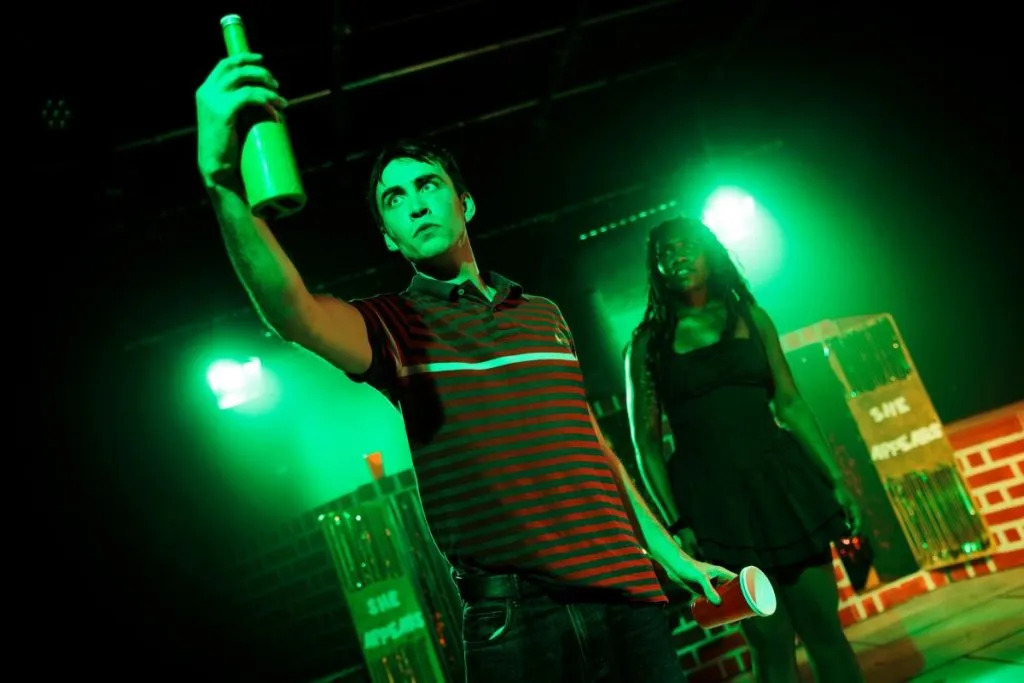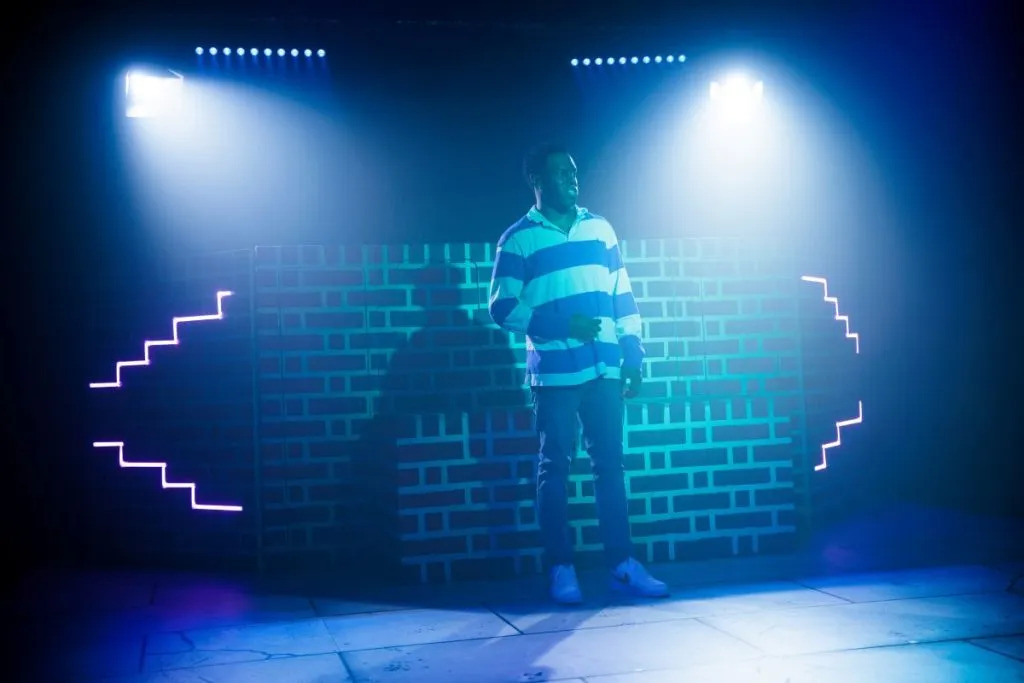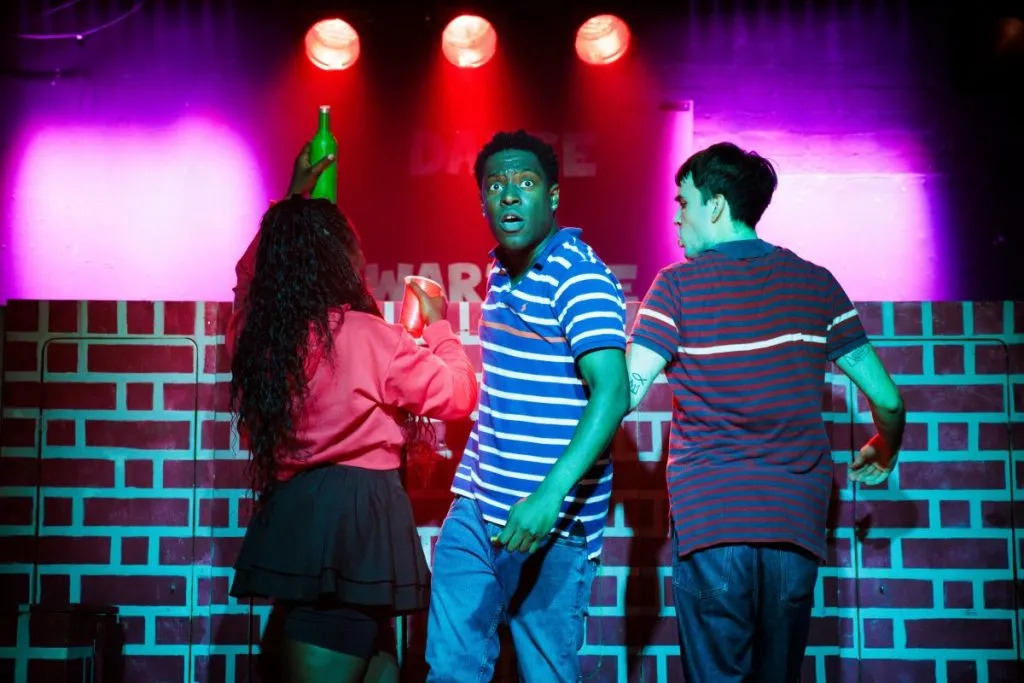This raw, one-act drama delivers more confusion than clarity at first, but eventually develops sharp energy as it carves a modest but memorable path through youth, class, and survival.
It’s a gritty drama by writer-co-director Sam Edmunds, co-directed with Vikesh Godhwani, staged at Southwark Playhouse Borough. The central performance is by Nathaniel Christian as ‘The Voice’, supported by Elan Butler (Lewis) and Leanne Henlon (Lakesha).
From late afternoon in austerity-hit Luton, you follow a teenager patching together booze and bravado for a party he hopes will change everything. He narrates a rambling interior monologue. The story moves through attempts to buy alcohol, a poorly planned party, and the aftermath when tensions surface.

At the beginning, you’re left guessing the point. The first ten minutes are extraordinarily dull: stuck in indecision and slog, burdened by pounding bass and searing purple lights before the lights even go up. If you entered headache-free, you developed one even before the curtain (metaphorically) rose. But after 20 minutes, the monologue clarifies. The Voice riffs on a mythical wartime Luton, like an imagined centre of excellence. That moment (around the first quarter) finally gave me purchase.
Christian as The Voice shifts dialects: Essex accent scrambles into Jamaican patois without warning. The effect is unstable, edgy, like teenage identity on overload. It unsettles you, but anchors those rambling first minutes. Butler’s Lewis doesn’t speak much; he’s mostly a silent shadow until the thug scene midway. His slow collapse into fear – body slack, eyes darting – maps a crisp arc of peer pressure and panic. That five-minute thug encounter is perfectly held.
Dry humour seeds the dark: a voice notes “Our school is special measures which means we’re fuuuucked”, grounding fear in bleak humour. Another crack about Luton airport being so awful that arriving travellers are basically bribed to go on holiday made me chuckle. A quick aside about St Albans being “proper posh” with its cathedral, lattes and farmers’ market lands easily. These riffs cut through the ramble toward sharper clarity.

Around the party midpoint, a scene sparks: The Voice meets the girl of his dreams, Lakesha. Dark-awkward flirting, bungled hugs, clothes compliments. with the timing echoeing cringe-humour akin to Curb Your Enthusiasm. That five-minute stretch reset the play’s rhythm. Later, a line about waiting for a piss that doesn’t care if your aim is good or not because “people have been pissing here like a bottle of champagne exploded” – that savage bit of imagery felt earned and grotesquely funny.
The play tries to probe poverty, university escape, knife crime and the pull of systemic neglect. The latter half leans into that: a surface debate about breaking poverty cycle via university feels undercooked. It gestures at systemic constraint but settles into personal anxiety instead. The urgency is there, but the leap to meaning is hesitant. Still, that honest, messy voice pulses through.
You’ll warm to the gritty wit and the authentic discomfort if you endure the slow start. If you prefer tightly paced narratives, you may find the first 20 minutes a slog. This is for those who don’t mind digging through noise to find pulse beneath.


